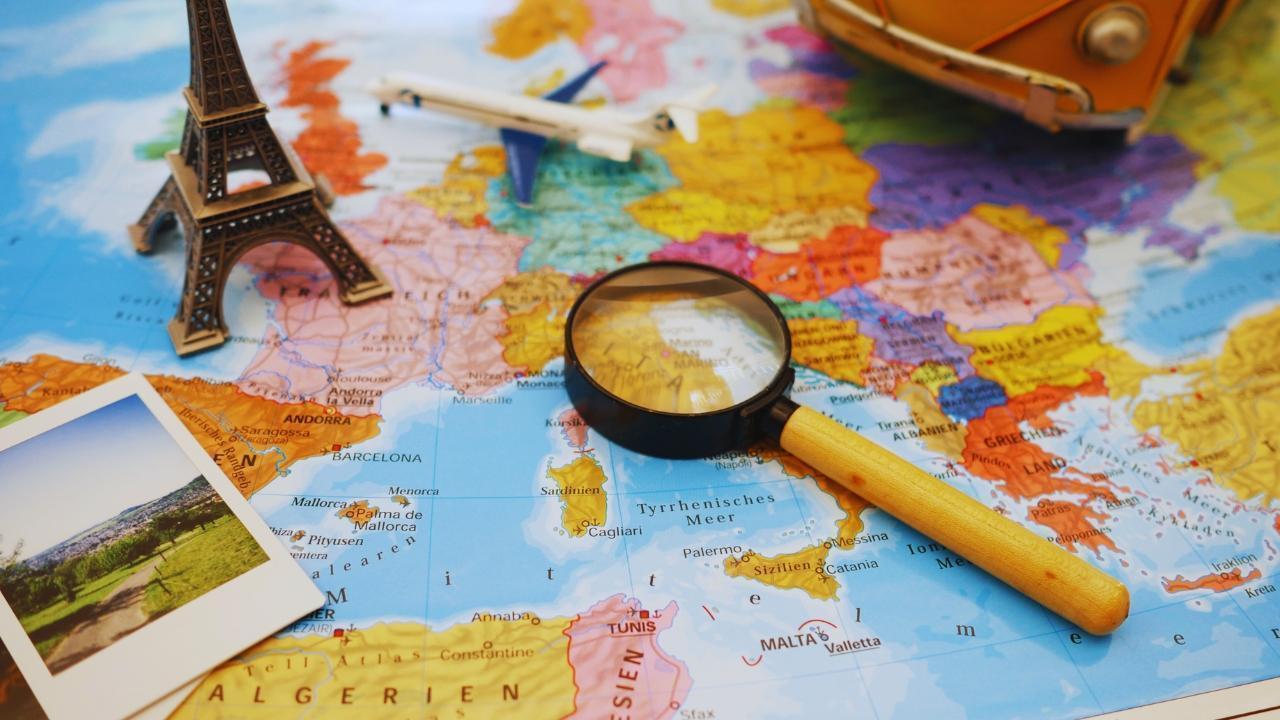
Post by : Anees Nasser
Planning a vacation has always been a mix of excitement and stress. From choosing destinations to booking flights, accommodations, and activities, the process could be overwhelming. However, technology is changing the travel landscape, and at the forefront of this revolution is Artificial Intelligence (AI). With the integration of AI tools, especially conversational models, travelers now have an easier, more personalized, and efficient way to plan their dream vacations.
Over the past few years, AI has been slowly shaping the tourism and hospitality industry, but 2025 marks a new era. With advanced AI models, travelers can now generate custom itineraries, find the best deals on flights and hotels, and even predict travel trends. Unlike traditional online booking platforms that require endless scrolling and comparisons, AI-powered travel planning offers a quick, conversational experience. Instead of searching through multiple tabs, users can simply tell an AI tool what they want—a beach vacation, a cultural experience, or an adventure trip—and receive curated suggestions within seconds.
One of the biggest advantages AI brings to vacation planning is personalization. For years, travelers have relied on generic guides and reviews. AI changes this by analyzing preferences, past travel history, and even current trends to create an itinerary that feels tailor-made. Want a five-day trip to Thailand that includes cultural sightseeing, spa retreats, and street food exploration? AI can build a schedule that balances your interests and time.
Moreover, these itineraries go beyond just listing places to visit. They can include real-time suggestions for restaurants, events, and weather-based activity changes. This dynamic approach ensures that travelers can adapt to conditions without losing the essence of their vacation.
One of the most stressful aspects of vacation planning has always been finding the right flights at the right price. AI is transforming this too. Instead of manually checking multiple booking sites or waiting for deals, AI tools now scan thousands of options instantly. They can predict fare changes based on historical data and suggest the best time to book, saving travelers both time and money.
Similarly, when it comes to accommodations, AI doesn’t just provide a list of hotels—it considers factors like budget, proximity to attractions, traveler reviews, and even niche preferences such as pet-friendliness or eco-certification. For those who love surprises, some AI services are even offering “mystery trips,” where the entire itinerary is planned by the system based on the traveler’s preferences.
Traveling abroad often comes with the challenge of language barriers. AI tools integrated into vacation planning apps now include instant translation features, allowing travelers to communicate with locals, read menus, and navigate public transport systems effortlessly. This feature alone has made travel more accessible and less intimidating for millions of people worldwide.
One of the lesser-known but highly impactful uses of AI in tourism is its predictive ability. AI systems can analyze global travel data to forecast upcoming trends, helping travelers choose less crowded destinations or emerging hotspots before they become mainstream. For example, if Bali is trending now, AI might suggest Sri Lanka or the Philippines as alternative destinations for similar experiences with fewer crowds.
Sustainability has become a key concern for modern travelers, and AI is helping address this. From recommending eco-friendly accommodations to suggesting routes that minimize carbon footprints, AI is enabling conscious travel choices. Some platforms even calculate the estimated emissions of your flights and suggest offsets or greener alternatives.
While AI offers unmatched convenience and speed, the human element in travel planning remains irreplaceable. Many travelers still enjoy the excitement of manual research and decision-making. AI is not meant to replace human creativity but rather enhance it by handling repetitive, time-consuming tasks. The future of travel planning lies in a hybrid approach—AI takes care of logistics while humans focus on experiences.
Despite its benefits, AI-driven vacation planning is not without challenges. Data privacy is a major concern, as these systems require access to personal information to provide personalized recommendations. Additionally, over-reliance on AI might lead to homogenized travel experiences, where everyone follows similar itineraries curated by algorithms. Therefore, maintaining balance and individuality will be key as AI continues to evolve in this space.
Looking ahead, AI’s role in vacation planning will only grow stronger. We can expect deeper integration with augmented reality (AR) and virtual reality (VR), allowing travelers to “preview” destinations before booking. AI could also incorporate biometric data, mood analysis, and voice tone recognition to further personalize experiences.
As technology advances, vacation planning is shifting from being a stressful task to an enjoyable prelude to the trip itself. With AI making travel more accessible, affordable, and personalized, the future of tourism looks smarter and more exciting than ever.
The information provided in this article is intended for general informational purposes only. While every effort has been made to ensure accuracy, the author and publisher make no guarantees about completeness or reliability. Readers should verify details and make decisions based on personal judgment and professional advice where necessary.










Curry Powers Warriors to Nail-Biting 109-108 Victory Against Spurs
Stephen Curry's 49 points propel the Warriors to a dramatic 109-108 NBA Cup triumph over the Spurs,

India Advances to Semi-Finals After Thrashing USA in Women’s Blind T20 World Cup
India secured a dominant ten-wicket victory over the USA, advancing to the semi-finals in the Women’

South Africa's Early Advantage as India Struggles on Day Two
On Day Two, India reached 138-4 as South Africa took three early wickets, complicating matters with

Kenta Nishimoto Defeats Lakshya Sen in Japan Masters Semifinal
Lakshya Sen's journey in the Japan Masters ends after losing to Kenta Nishimoto 19-21, 21-14, 12-21

Kenta Nishimoto Defeats Lakshya Sen in Japan Masters Semifinals
Lakshya Sen's run at the Japan Masters concludes with a loss to Kenta Nishimoto in the semifinals, 1

Major IPL Trade: Jadeja Joins Royals as CSK Signs Samson
In a significant IPL trade, CSK has acquired Sanju Samson from Rajasthan Royals in exchange for Ravi